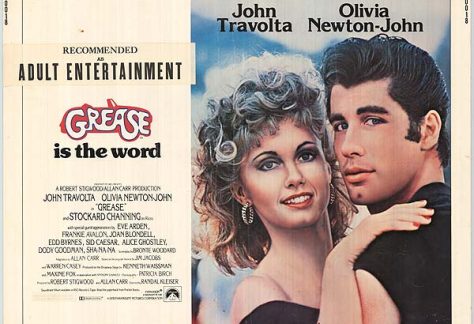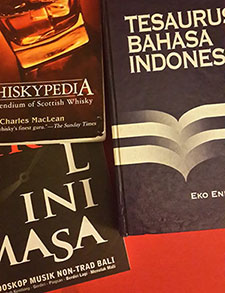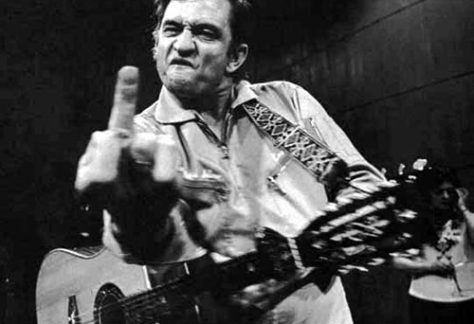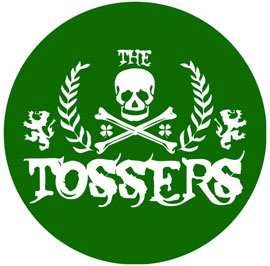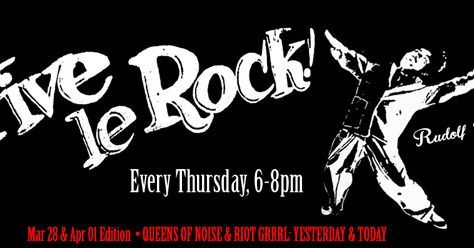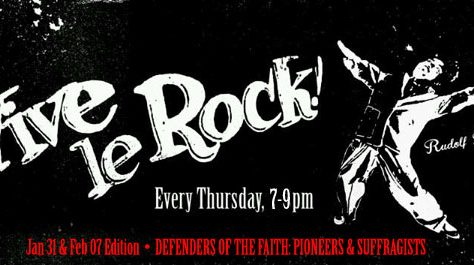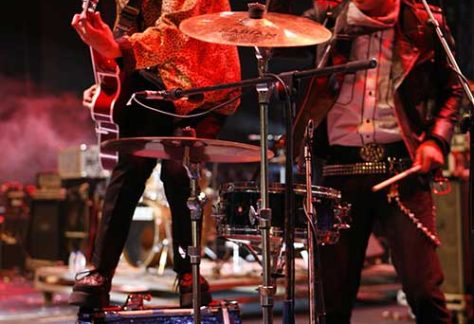16 Juni, 40 tahun yang lalu, Grease resmi diluncurkan. Film ini punya peran vital dalam perkembangan Rockabilly di Indonesia. Terutama di segi busana.
Home / Trivia
Di Indonesia, barangkali hanya Bali satu-satunya daerah di mana punk rock menjadi musik arus utama, paling populer, menyalip genre apa pun.
2 Mei 2015 menjadi kurun bersejarah bagi saya. Bagaimana tidak, dua momen penting bergabung menjadi satu: Saraswati, hari besar umat Hindu, jatuhnya bersamaan dengan Hari Pendidikan Nasional.
Gestur mengacungkan jari tengah seperti yang dilakukan Lemmy di foto yang terpampang di sebelah merefleksikan tindakan derogatori, menghina lawan bicara, melecehkan pihak lain.
Dulu saya pernah bilang, dan kini saya bilang lagi: The Tossers adalah kolektif Celtic Punk yang duhai saya ultra sukai.
VIVE LE ROCK
Every Thursday 7-9pm (Bali time)
Rebel Radio Indonesia
VIVE LE ROCK
Every Thursday 7-9pm (Bali time)
Rebel Radio Indonesia
VIVE LE ROCK
Every Thursday 7-9pm (Bali time)
Rebel Radio Indonesia
My new weekly radio program on Rebel Radio Indonesia:
Umlaut adalah sebuah diakritik yang terdiri dari sepasang titik atau garis-garis yang ditempatkan pada sebuah huruf---biasanya huruf hidup.
Diakritik? Huh? Ia berupa tanda kecil yang ditempatkan pada sebuah huruf untuk membedakan pengucapan dari huruf sejenis. Umlaut---yang berasal dari Bahasa Jerman---secara bebas bisa diterjemahkan sebagai "perubahan pengucapan", pula "pergantian bunyi". Huruf a, misalnya, dilafalkan sedikit berbeda dengan ä, o tak sama dengan ö, bunyi ü lebih lemah dibanding u. Demikian seterusnya.
The Block Rockin' Beats
Edition: March 23, 201138 (Infamous) Punk Rock and New Wave Anthems You Must Hear Before You DieIn case you kiddos don't know or easily amazed by Fat Mike cheap talks and still think the owner of Atticus clothing label---what's his name again---is the 3-chords prophet, well, you must listen carefully to this playlist. These songs are in the category of "not widely popular but uber influential" among Punk Rock and New Wave scene. These are kickass anthems you must hear before you die.
Oh, first thing first: give away your Macbeth shoes to your lovely punk wannabe little brother, and you, put back on your Doc Martens. Show some respect to Malcolm McLaren and Vivienne Westwood.
Download the whole playlist here
Tonite! Wednesday, March 23, 2011; 8-10 PM38 (Infamous) Punk Rock and New Wave Anthems You Must Hear Before You DieIn case you kiddos don't know or easily amazed by Fat Mike cheap talks and still think the owner of Atticus clothing label---what's his name again---is the 3-chords prophet, well, you must listen carefully to this playlist. These songs, most of them, are in the category of "not widely popular but uber influential" among Punk Rock and New Wave scene. These are kickass anthems you must hear before you die. Oh, first thing first: give away your Macbeth shoes to your lovely punk wannabe little brother, and you, put back on your Doc Martens. Show some respect to Malcolm McLaren and Vivienne Westwood.
♬ ♪ Radio streaming live http://army.wavestreamer.com:6356/listen.pls ♫ ♬
The New Wave of British Heavy Metal (frequently abbreviated as NWOBHM) was a heavy metal movement that started in the late 1970s, in Britain, and achieved international attention by the early 1980s. The movement developed as a reaction in part to the decline of early heavy metal bands such as Deep Purple, Led Zeppelin and Black Sabbath.
NWOBHM bands toned down the blues influences of earlier acts, incorporated elements of punk, increased the tempo, and adopted a "tougher" sound, taking a harder approach to its music. It was a scene directed almost exclusively at heavy metal fans. The era is considered to be a major foundation stone for the extreme metal genres; acts such as the American thrash metal band Metallica cite NWOBHM bands like Saxon, Motörhead, Diamond Head, and Iron Maiden as a major influence on their musical style
Reviled or ignored by many mainstream critics in both the UK and the US, the NWOBHM nonetheless came to dominate the heavy metal scene of the early-mid 1980s. NWOBHM was musically characterized by fast upbeat tempo songs, power chords, fast guitar solos and melodic, soaring vocals, with lyrical themes often drawing inspiration from mythology and fantasy fiction.
The early movement was associated with acts such as Iron Maiden, Def Leppard, Saxon, Motörhead, Angel Witch, Tygers of Pan Tang, Blitzkrieg, Avenger, Sweet Savage, Girlschool, Jaguar, Demon, Diamond Head, Samson and Tank, among others. The image of bands such as Saxon, consisting of long hair, denim jackets, leather and chains, would later become synonymous with heavy metal as a whole during the 1980s. Some bands, although conceived during this era, saw success on an underground scale, as was the case with Venom and Quartz.
Tonite! Wednesday, 2010; 8-10 PMOld and New: Way Back Before You Were PunkGoodbye 2010.
Hello 2011.
Old school meets nü skool.
Respect the past, affect the future.
Lest we forget.
♪ ♬ ♫ Radio streaming live http://army.wavestreamer.com:6356/listen.pls
Tomorrow nite! Wednesday, Jan 12, 2010; 8-10 PMOld & New: Magnum Opus and Nouveau TraditionalistsGoodbye 2010.
Hello 2011.
Old school meets nü skool.
Respect the past, affect the future.
Lest we forget.
♪♬ Radio streaming live http://army.wavestreamer.com:6356/listen.pls
Tonite! Wednesday, January 05, 2011; 8-10 PMOld & New: Badasser Than ThouGoodbye 2010.
Hello 2011.
Old school meets nü skool.
Respect the past, affect the future.
Lest we forget.
♪♬ Radio streaming live http://army.wavestreamer.com:6356/listen.pls
Jika menyebut nama Slash, selain rambut keriting serta kepiawaiannya bergitar, apa yang paling benderang kita ingat dari dia? Topinya, tentu. Begitu juga The Blues Brothers serta Brian Johnson biduan AC/DC, sama sebangun, segendang sepenarian, ciri khas mereka ada pada aksesori yang dikenakan di kepalanya.
Cuman, giliran ditanyain penutup kepala nan panjang yang gemar dipakai oleh pria bernama asli Saul Hudson itu tepatnya bernama apa, saya berani jamin pasti sebagian besar dari anda bakal bengong kebingungan. Hey, sebutan tepatnya adalah "Top Hatâ€. Sementara topi khas The Blues Brothers dikenal dengan “Fedoraâ€.
Dari Bali mereka menolak keseragaman selera bermusik. Dengan tato, alkohol dan, simbol-simbol judi, memainkan Rockabilly lebih menarik minat wanita.
About
Music journalist, writer, radio DJ, socio-political activist, creative industry leader, and a qualified librarian, Rudolf Dethu is heavily under the influence of the punk rock philosophy.

